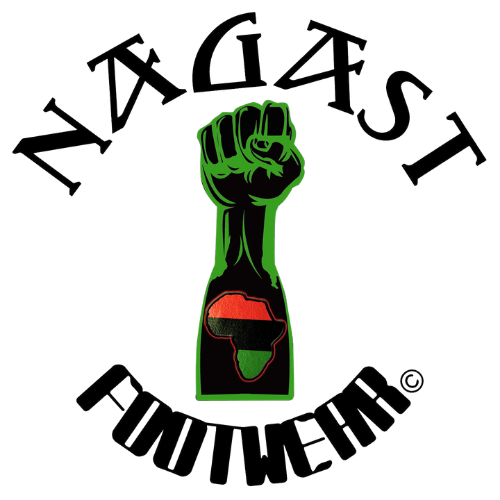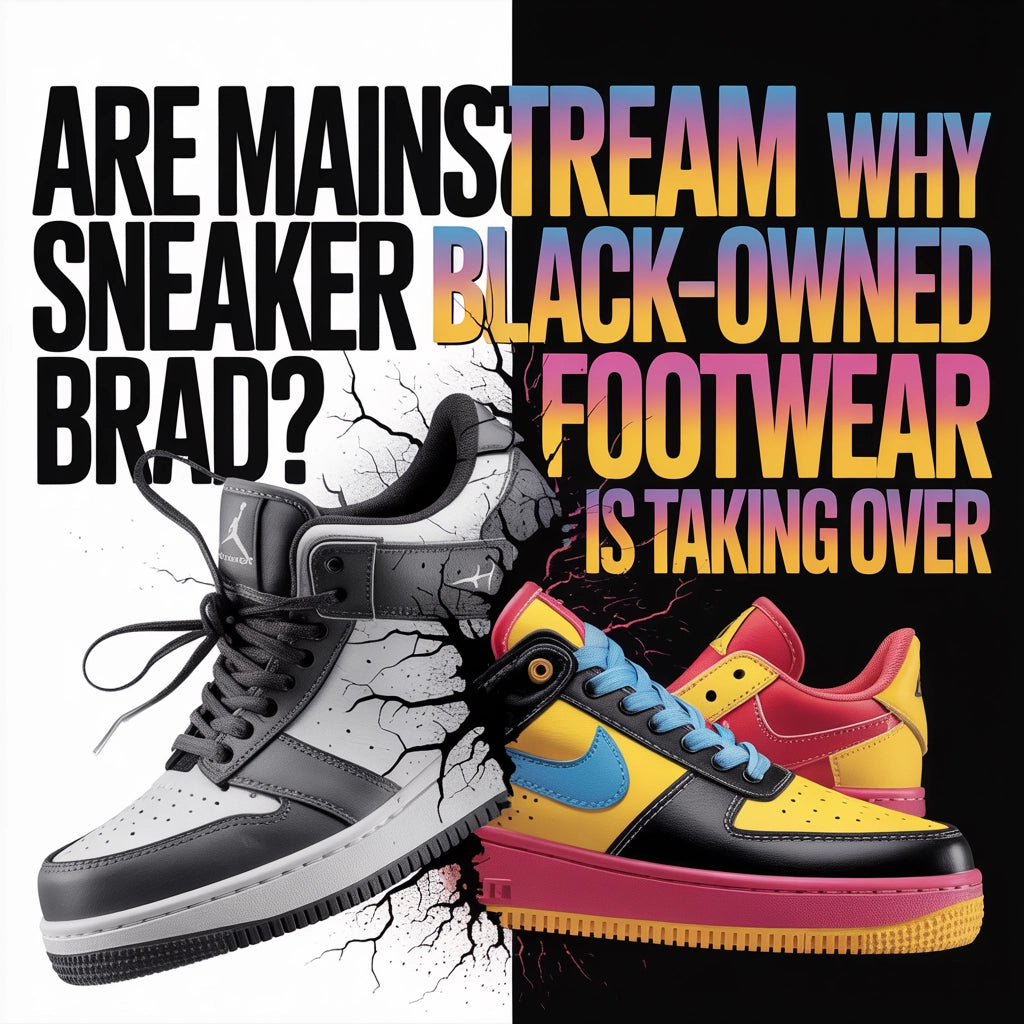
Are Mainstream Sneaker Brands Dead? Why Black-Owned Footwear Is Taking Over
Share
Let's be real for a minute. Walk into any sneaker store, and you'll still see walls dominated by Nike swooshes and Adidas three-stripes. So are mainstream brands actually dead? Not quite. But something major is shifting in the footwear game, and Black-owned brands are leading the charge.
The truth is more nuanced than the headlines suggest. While mainstream giants aren't going anywhere, Black-owned footwear companies are carving out serious space in a market that's hungry for authenticity, cultural connection, and something different from the same old corporate playbook.
The Numbers Don't Lie: Mainstream Brands Still Dominate
Before we get ahead of ourselves, let's look at the facts. Nike still commands a staggering 96% brand recognition among U.S. consumers, with Adidas close behind at 95%. That's not exactly "dead" territory. Nike's got 65% of consumers saying they like the brand and 58% actually owning their products, backed by an 84% loyalty rate among existing customers.
The sneaker market itself is projected to hit $25.6 billion in revenue by 2025 in the U.S. alone. Major brands are still driving innovation—just look at the hybrid sneaker trend that's exploded with 3,700% year-over-year growth in search interest. These "snoafers" (sneaker-loafer hybrids) from brands like New Balance and Hoka prove that established players can still move the needle.
But here's where it gets interesting. While these brands maintain their market dominance, they're facing new pressures that create openings for disruptors.
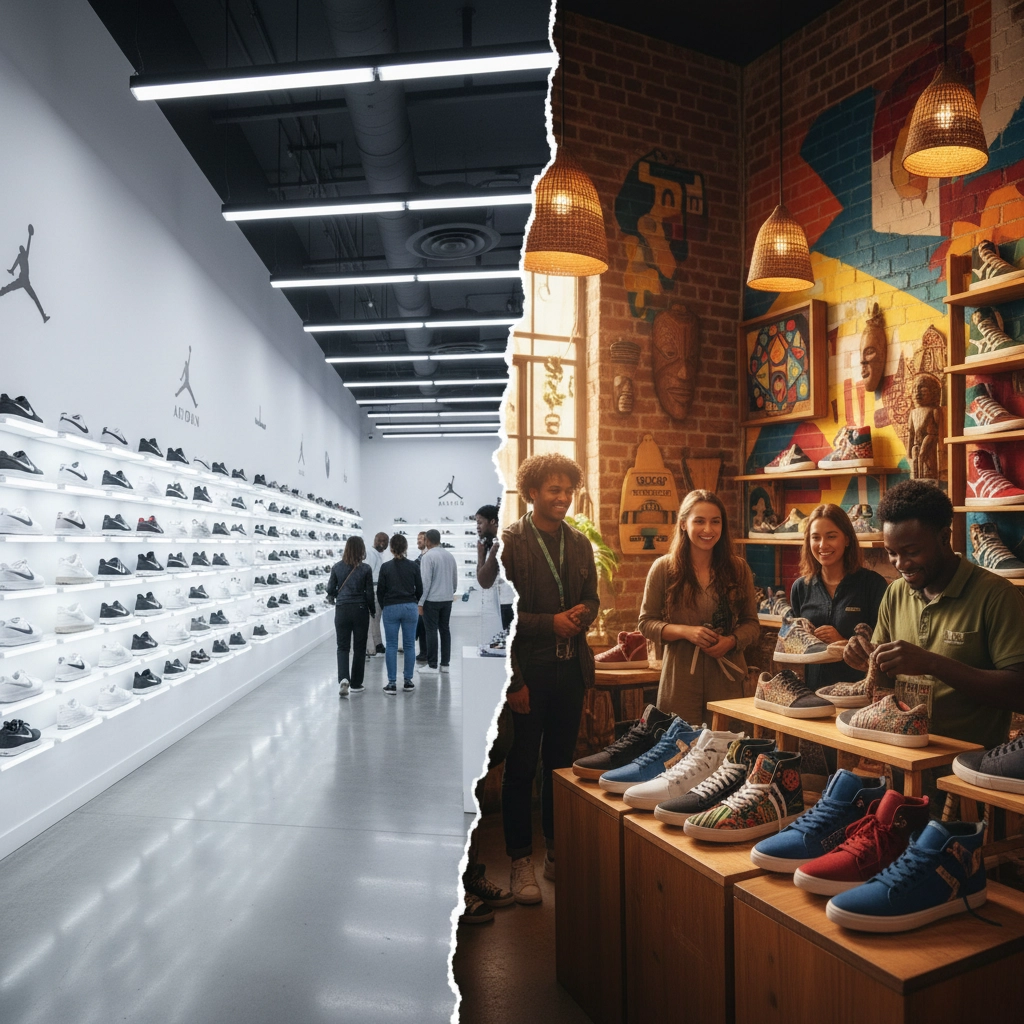
The Real Shift: Culture Over Corporate
What's actually happening isn't the death of mainstream brands—it's the birth of a more diverse, culturally conscious market. Black-owned footwear brands aren't just selling shoes; they're selling stories, heritage, and authentic connections that resonate deeper than any celebrity endorsement.
Take Saysh, co-founded by Olympic champion Allyson Felix and her brother Wes Felix. This wasn't just another shoe launch—it was born from Felix's fight against Nike when they wanted to cut her pay during pregnancy. Instead of accepting the status quo, she built something better. Saysh designs specifically for women's feet, with narrower heels and wider forefeet, ditching the tired "shrink-it-and-pink-it" approach that mainstream brands have relied on for decades.
Then there's Volas, created by designer Ler in Houston, which combines Italian craftsmanship with Southern soul. They're proving that regional luxury brands can compete globally, delivering handcrafted products in collector-level packaging that makes unboxing feel like an event.
These brands represent what consumers increasingly crave: "walking legacies of culture, creativity, and community" that you simply can't get from a massive corporation.
What's Driving the Change
Several factors are creating the perfect storm for Black-owned footwear brands to thrive:
Price Sensitivity Meets Values: With 78% of consumers abandoning purchases due to price hikes, people are being more selective. When they do spend, they want their money to align with their values. Casual and athletic shoes are projected to decline 17-26%, but that doesn't mean people are buying fewer shoes—they're just being pickier about where they spend.
Sustainability Matters: 40% of shoppers prioritize affordability while 32% factor in ethical production. This creates space for brands that can tell a compelling story about their manufacturing process, community impact, and environmental responsibility.
Authenticity Over Hype: Consumers, especially younger ones, can spot corporate cultural appropriation from miles away. They want brands that genuinely represent the cultures they claim to celebrate, not just slap some colors on a shoe and call it "heritage inspired."
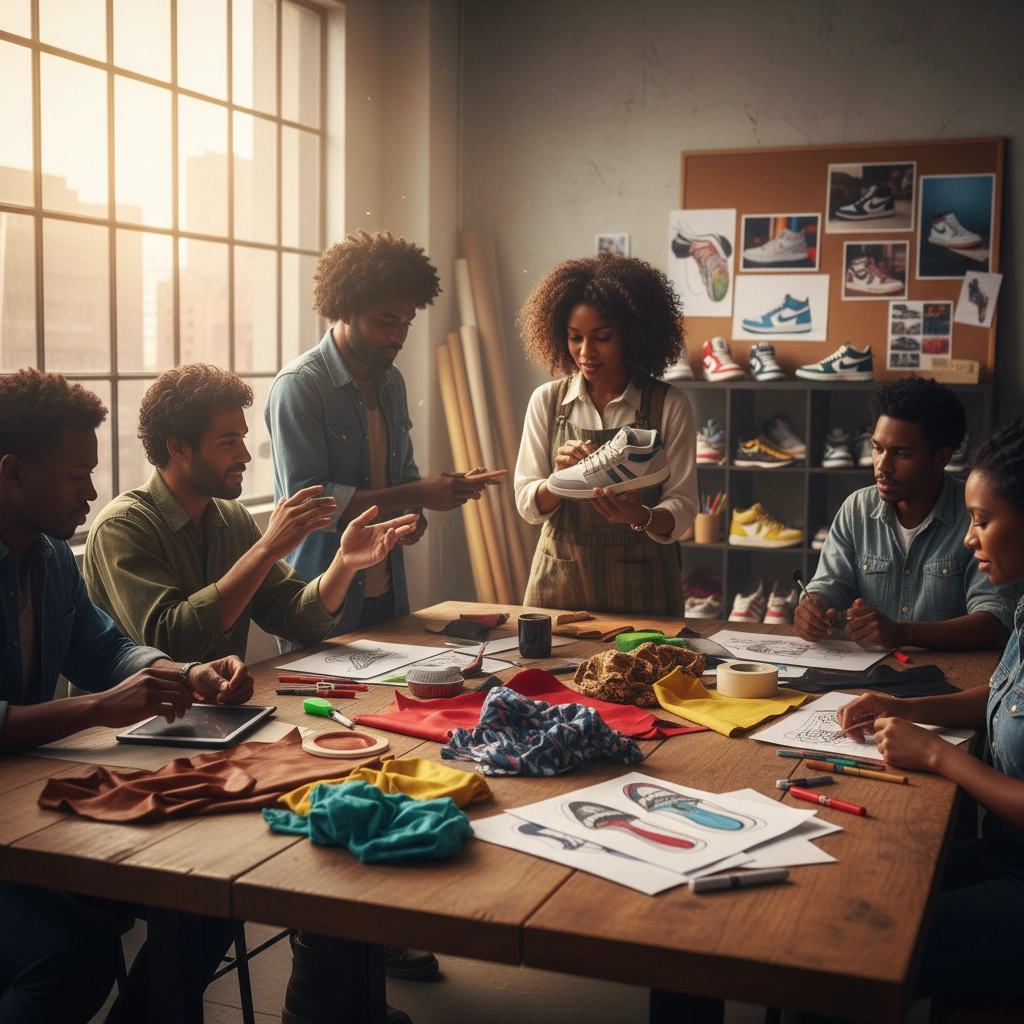
The Success Stories Keep Coming
The momentum is undeniable. Black-owned brands are proving that you don't need a billion-dollar marketing budget to make an impact—you need authenticity, quality, and a genuine connection to your community.
Some brands are focusing on luxury craftsmanship, others on athletic performance, and still others on streetwear culture. What they all share is a commitment to representing their communities authentically and building products that reflect real experiences and needs.
At Nagast Footwear, we've seen this firsthand. Our customers aren't just buying shoes—they're investing in a brand that understands their story and celebrates their heritage without compromise.
The Sustainability Factor
Both mainstream and emerging brands are responding to environmental concerns, but they're taking different approaches. Major companies like Adidas have pledged to phase out virgin plastic and are launching shoes made from ocean waste, while Nike has invested heavily in closed-loop manufacturing systems.
Meanwhile, brands like Veja, Allbirds, and On Running lead with plant-based materials and recycled components from day one, proving that responsible design can push boundaries rather than limit them. This gives newer, more agile brands an advantage in connecting with environmentally conscious consumers who want their purchases to reflect their values.
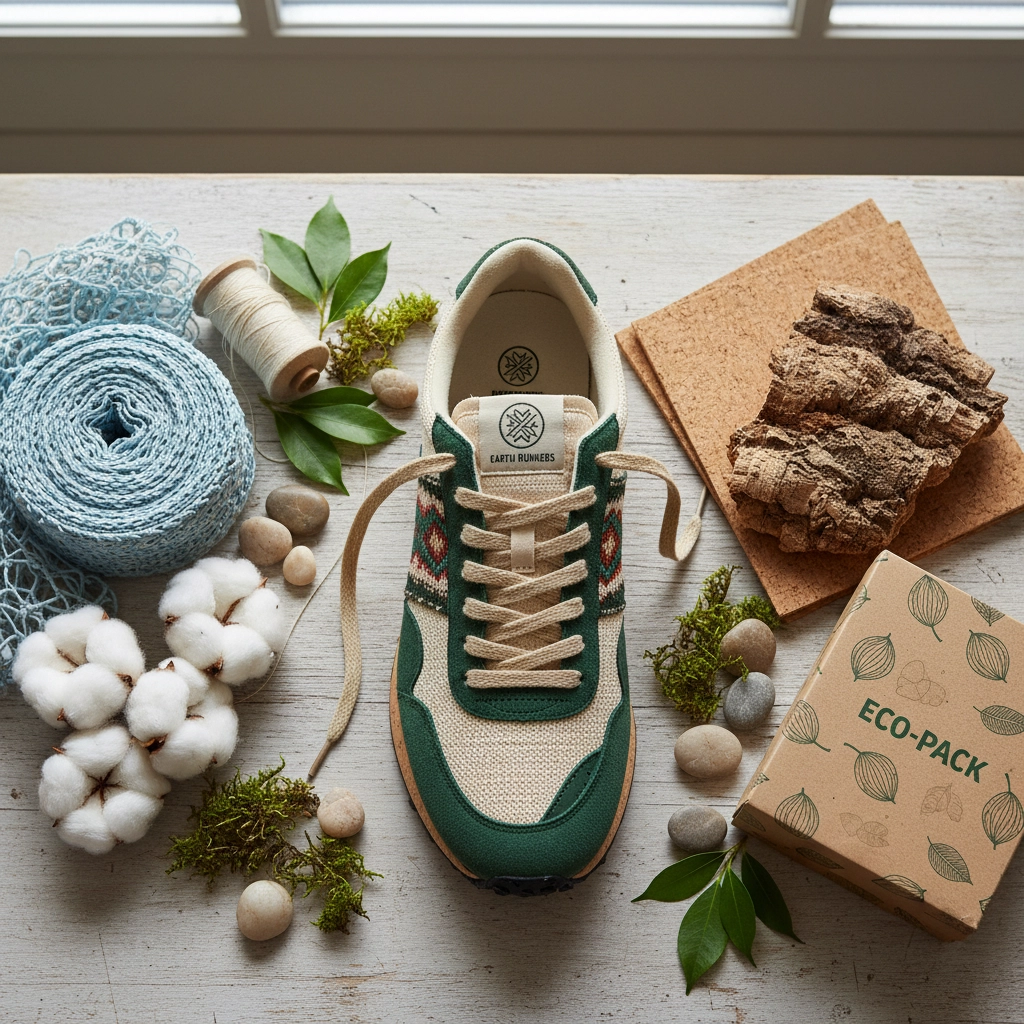
It's Not Takeover—It's Evolution
Here's the reality: Black-owned footwear brands aren't killing mainstream brands—they're forcing the entire industry to evolve. The market isn't shrinking; it's diversifying.
Mainstream giants still have massive advantages in distribution, manufacturing scale, and marketing reach. But Black-owned brands have something equally powerful: authenticity, community connection, and the ability to move quickly when they spot cultural shifts.
What we're seeing is coexistence and competition that's making the entire market better. Mainstream brands are being pushed to be more culturally sensitive, more sustainable, and more authentic in their community engagement. Meanwhile, Black-owned brands are proving that with the right approach, you can build serious market share by staying true to your values and your community.
What This Means for You
As a consumer, this shift gives you more power than ever before. You can choose brands that align with your values, support communities that matter to you, and find products designed with your actual needs in mind—not just what focus groups think you want.
For Black consumers especially, there's now a real choice between supporting brands that see you as a marketing demographic versus brands that see you as family. The difference shows up in everything from how products are designed to how companies engage with their communities.
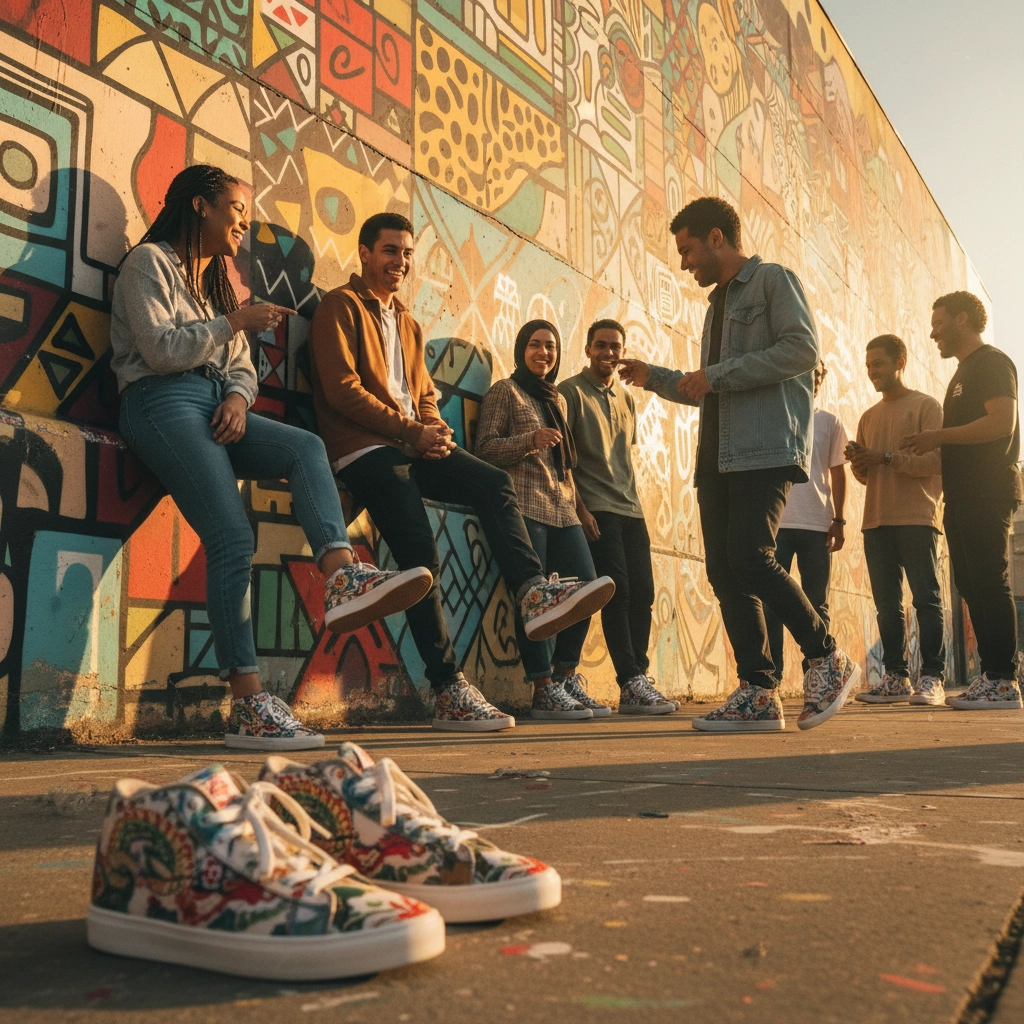
The Future Is Diverse
The footwear industry's future isn't about Black-owned brands replacing mainstream ones—it's about creating a more diverse, competitive landscape where different brands can thrive by serving different needs and communities.
Mainstream brands will continue to dominate overall market share through their established networks and resources. But Black-owned brands are claiming meaningful territory by emphasizing cultural authenticity, community connection, and values-driven design.
This dynamic creates a healthier market that benefits everyone. Consumers get more choices, better representation, and products designed with genuine care. The industry gets pushed toward more innovation, sustainability, and cultural sensitivity.
So no, mainstream sneaker brands aren't dead. But the days of them having the market all to themselves? Those days are definitely numbered. And honestly, that's exactly how it should be.
The real winners in this evolution are consumers who now have access to brands that truly understand their culture, values, and needs. Whether that's a heritage-celebrating design from Nagast Footwear or a performance shoe from an Olympic champion's brand, the choices have never been better—or more meaningful.
